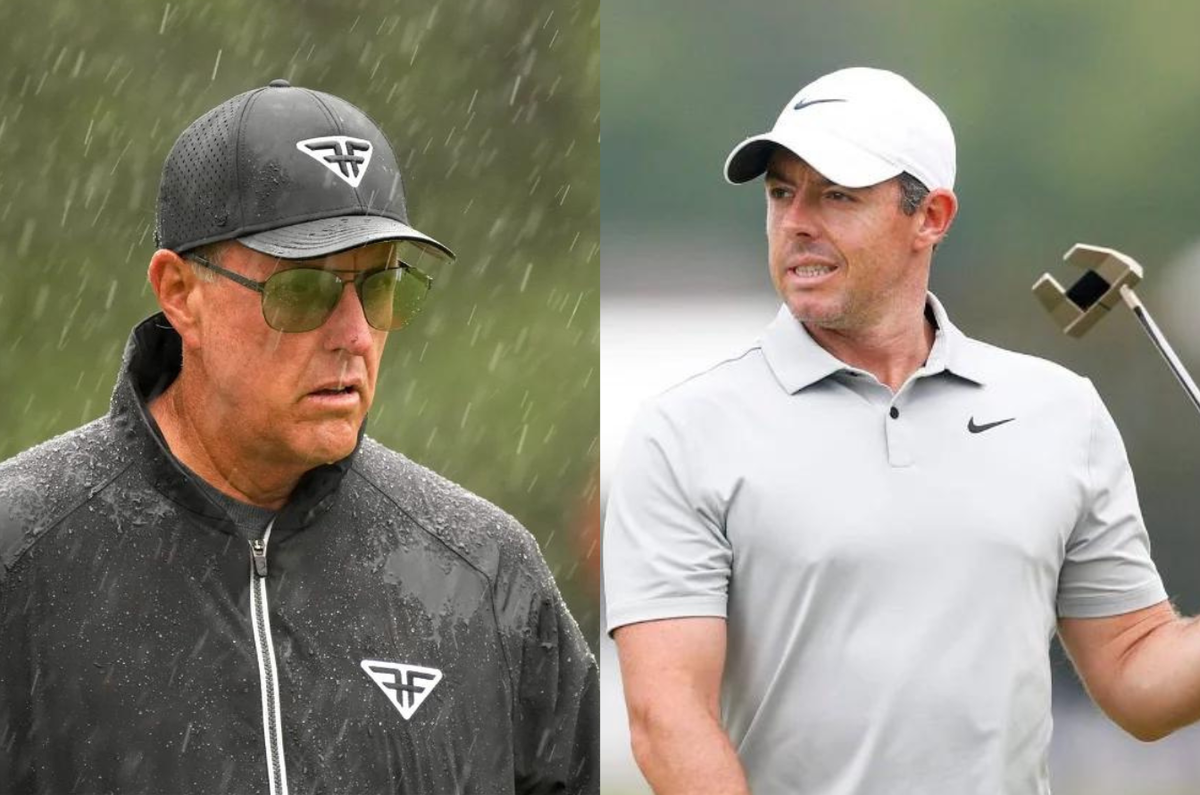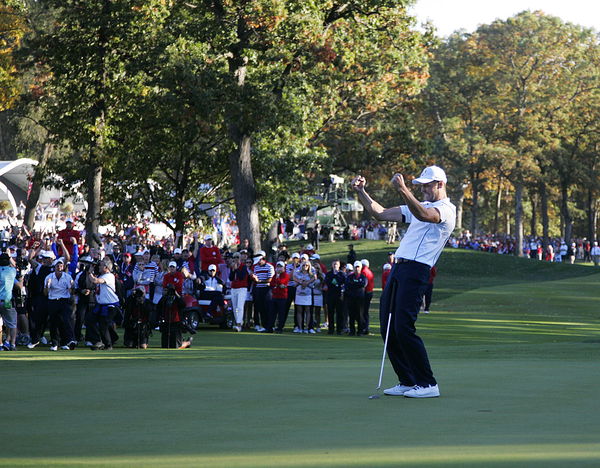
Imago
Image Courtesy: IMAGO

Imago
Image Courtesy: IMAGO
The hotel team room at Medinah on Friday night in 2012 was supposed to be a quiet place to regroup. Team Europe had just lost 5–3 in the opening session of the Ryder Cup. Spirits were low, and the players expected another calm pep talk from their famously gentle captain, José María Olazábal. Instead, as Graeme McDowell remembers it, the room went silent for a different reason.
Watch What’s Trending Now!
“He just pretty much ripped us a new one,” McDowell told Smylie Kaufman on The Smylie Show. “Jose… he’s normally a lover, not a fighter. He’s just one of those guys who’s going to give you a hug every time he sees you. But we sit down in the team room and he chews us out for our behavior on the golf course that day.”
Olazábal’s words cut through the team like a cold wind. “He basically said, ‘one player’s walking down one side of the fairway, the other one’s down the other side.’ He said, ‘You guys are a team. You need to act like a team.’” McDowell, who had played alongside Rory McIlroy, admitted he wasn’t sure which pair the captain meant, “He was upset about the way we had conducted ourselves as a team.” The normally mild-mannered Spaniard made it clear: walk that fairway like you are one, protect each other, play for each other.
Those sentences became the spine of Europe’s comeback. They set the emotional stage for what history now calls the ‘Miracle at Medinah’: a rally from a 10–6 deficit to a 14½–13½ victory over a U.S. squad anchored by Tiger Woods and Phil Mickelson. The numbers tell the scale: Europe needed eight points from twelve Sunday singles. They earned eight and a half wins. But the spark was lit in that tense room. “We all went to bed with our tail between our legs a little bit,” McDowell said.
Saturday (September 29, 2012) brought more pressure. Europe again lost 5–3, but the final match of the day flipped the mood. McDowell recalled, “Poulter birdies those last five holes that afternoon with Rory—Rory standing on the 18th green, image of him just shaking his head as Poulter rolls in another 12-15 footer.” The team, still four points down, came back to the hotel “absolutely buzzing… for absolutely zero reason… It didn’t make any sense. Mathematically, it made no sense whatsoever,” McDowell recalled.

Imago
The 39th Ryder Cup 2012 Martin Kaymer sinks the winning putt and celebrates on the final day of the 39th Ryder Cup 2012, Medinah Country Club, Chicago, USA 29/09/2012 Copyright: xMarkxNewcombex
Olazábal sensed the change immediately. “He said, ‘Exactly what I wanted to see (from) Team Europe today,'” McDowell remembered. This time, there was no anger; only a captain seeing belief take root. On Sunday, Europe stormed the singles. Justin Rose holed a 35-footer on 17 to beat Phil Mickelson. Martin Kaymer drained a nervy five-foot par putt on 18 to clinch the Cup. Francesco Molinari’s tie with Tiger Woods sealed the final scoreline.
McDowell lost his match to Zach Johnson, but he still felt the charge. “I just remember the energy getting sucked out of the whole crowd,” he said of the closing stretch. The Americans, who once seemed untouchable, were suddenly quiet. Olazábal’s Friday-night fury has become a key chapter in Ryder Cup lore. It turned Seve Ballesteros’ legacy into a collective purpose, transformed a room of defeated men into believers, and gave Europe the emotional edge to pull off one of golf’s greatest comebacks.
Just as Olazábal’s searing team-room challenge still echoed in their ears, the answer materialized on course in the most electrifying, and almost supernatural way: Ian Poulter began a birdie blitz that felt less like a coincidence and more like destiny.
Ian Poulter’s closing stretch at Medinah
Ian Poulter’s closing stretch on Saturday at Medinah remains one of the Ryder Cup’s great momentum shifts. Partnered with Rory McIlroy, Poulter birdied each of the final five holes, 14 through 18, to snatch a 1-up four-ball victory that kept Europe within striking distance. His final putt, a curling 12–15 footer on 18, sent the European team and the Illinois crowd into shock and gave the visitors their first real spark.
While official PGA Tour–style strokes-gained data aren’t tracked for Ryder Cup matches, the math is clear: Poulter played those holes at five under par, creating a potential five-stroke swing if the American pair stayed at level par. In match play, that surge is essentially a full match flip, turning a likely loss into a vital point.

Imago
Ryder Cup golf tournament Team Europe s Ian Poulter celebrates winning the first hole of the day during the Ryder Cup golf tournament at Medinah Country Club in Medinah, Illinois, on Saturday, September 29, 2012. Brian Cassella/Chicago Tribune/MCT Medinah IL USA EDITORIAL USE ONLY Copyright: xx 1129462 BrianxCassellax krtphotoslive576885
Poulter later recalled the moment as pure adrenaline. “We needed to get something going… five in a row. It was awesome,” he said, describing himself as “eyes burning like a man possessed.” That intensity carried back to the European team room, where players who had trailed all day suddenly believed a comeback was possible
The five-birdie finish became the emotional ignition for Sunday’s singles and the turning point of the entire 2012 Ryder Cup. Coming off José María Olazábal’s fiery Friday-night speech, Europe still faced a daunting 10–6 deficit after Saturday’s play, a margin no visiting team had ever overcome on U.S. soil. Yet Poulter’s burst of five straight birdies, each worth a stroke under par and effectively a five-stroke swing in match-play terms, infused the team with belief and silenced a partisan Medinah crowd.
That surge carried into the final day, where Europe won eight of the twelve singles matches and halved another to complete a 14½–13½ victory. In retrospect, Poulter’s run wasn’t just a spectacular individual effort; it was the spark that turned Olazábal’s challenge into action and proved how one blistering stretch of golf can flip an entire Ryder Cup from near-certain defeat to historic triumph.








